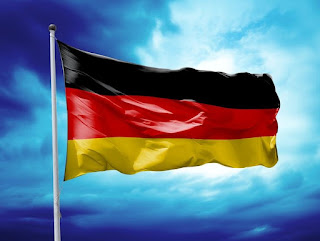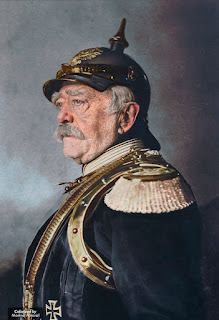Germany(Deutschland]
Geography and Demographics
Germany, officially known as the Federal Republic of Germany, is located in Central Europe. It is bordered by Denmark to the north, Poland and the Czech Republic to the east, Austria and Switzerland to the south, and France, Luxembourg, Belgium, and the Netherlands to the west. Germany covers an area of approximately 357,022 square kilometers (137,988 square miles) and has a population of over 83 million people, making it the most populous country in the European Union.
The country features a diverse landscape that includes the forested uplands of central Germany, the flat plains in the north, the Bavarian Alps in the south, and numerous rivers such as the Rhine, Danube, and Elbe. Its climate is generally temperate, with moderate seasonal variations in temperature and precipitation.
History
The 19th century saw the rise of Prussia, which played a crucial role in the unification of Germany in 1871 under Otto von Bismarck. This marked the beginning of the German Empire. Following its defeat in World War I, Germany experienced political instability and economic hardship, leading to the rise of the Nazi Party and Adolf Hitler. The Nazi regime's aggressive expansionist policies led to World War II, which resulted in massive devastation and the Holocaust.
After World War II, Germany was divided into East Germany (controlled by the Soviet Union) and West Germany (aligned with the Western Allies). This division lasted until 1990 when the country was reunified following the fall of the Berlin Wall and the collapse of the Soviet Union.
Government and Politics
Germany is a federal parliamentary republic. The political system is defined by the Basic Law for the Federal Republic of Germany, enacted in 1949. The country has a bicameral legislature, consisting of the Bundestag (Federal Diet) and the Bundesrat (Federal Council). The Chancellor is the head of government, while the President serves as the head of state with largely ceremonial duties.
Germany is known for its stable political environment and plays a leading role in the European Union. It is also a member of numerous international organizations, including the United Nations, NATO, the G7, the G20, and the Organization for Economic Co-operation and Development (OECD).
Economy
Germany has one of the largest and most developed economies in the world. It is the largest economy in Europe and the fourth-largest globally by nominal GDP. The country is a leading exporter, with a highly diversified industrial sector. Key industries include automotive manufacturing, machinery, chemicals, electronics, and pharmaceuticals.
Germany is home to some of the world's most well-known companies, such as Volkswagen, BMW, Siemens, and BASF. The country's economic success is also attributed to its strong emphasis on vocational training and a highly skilled workforce. Additionally, Germany has a robust social market economy, characterized by a mix of free market capitalism with comprehensive social welfare programs.
Culture
Germany has a rich cultural heritage that has made significant contributions to art, literature, music, philosophy, and science. The country has produced many influential figures, including composers like Johann Sebastian Bach, Ludwig van Beethoven, and Richard Wagner; writers such as Johann Wolfgang von Goethe and Thomas Mann; philosophers like Immanuel Kant and Friedrich Nietzsche; and scientists such as Albert Einstein and Max Planck.
German culture is also known for its festivals, such as Oktoberfest in Munich, which is the world's largest beer festival, and the Cologne Carnival. The country has a strong tradition of Christmas markets, particularly in cities like Nuremberg and Dresden.
Germany's culinary traditions are diverse, with regional specialties that include sausages, sauerkraut, pretzels, and various types of bread and pastries. The country is also renowned for its beer, with a brewing tradition that dates back centuries.
Education and Science
Germany places a high value on education, with a well-developed system that includes free primary, secondary, and higher education. The country is home to some of the world's oldest and most prestigious universities, such as the University of Heidelberg, the University of Göttingen, and the Ludwig Maximilian University of Munich.
Germany has a strong tradition of scientific research and innovation. It has produced numerous Nobel laureates in fields such as physics, chemistry, and medicine. The country is a leader in engineering and technology, with significant contributions to industries such as automotive, aerospace, and renewable energy.
Environmental Sustainability
Germany is a global leader in environmental sustainability and renewable energy. The country has implemented ambitious policies to reduce greenhouse gas emissions and transition to a low-carbon economy. The Energiewende (energy transition) initiative aims to phase out nuclear power and increase the share of renewable energy sources, such as wind and solar, in the national energy mix.
Germany has also made significant progress in waste management and recycling, with one of the highest recycling rates in the world. The country promotes sustainable practices in agriculture, forestry, and urban planning.
Tourism
Germany is a popular tourist destination, known for its historical landmarks, scenic landscapes, and vibrant cities. Major attractions include the Brandenburg Gate in Berlin, Neuschwanstein Castle in Bavaria, the Cologne Cathedral, and the Black Forest. The country also offers numerous cultural and recreational activities, such as hiking in the Alps, exploring medieval towns, and visiting world-class museums and galleries.
Berlin, the capital city, is renowned for its dynamic arts scene, historical sites, and nightlife. Other notable cities include Munich, known for its Oktoberfest and beer gardens; Hamburg, with its historic harbor and modern architecture; and Frankfurt, a major financial hub with a distinctive skyline.
Conclusion
Germany is a country with a rich history, vibrant culture, and a strong economy. Its contributions to various fields, from music and philosophy to science and engineering, have had a profound impact on the world. With its commitment to education, innovation, and sustainability, Germany continues to play a significant role on the global stage.











0 Comments